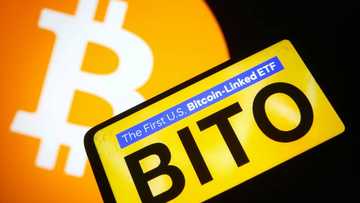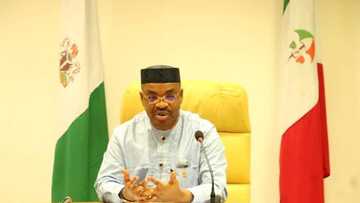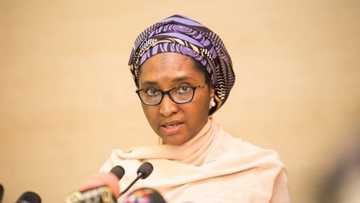Petrol Price Rises to N531 in Zambia as Govt Removes Fuel Subsidy for Loans, While Nigerians Wait for 2022
- While Nigerians await the Federal Government's decision on the withdrawal of fuel subsidies in June 2022, the Zambian government has already made its choice
- Zambians, like Nigerians, benefit from gasoline subsidies, which have kept the product price relatively low throughout the years
- However, since the government's resources have become more stressed govt has chosen to stop subsidy payment, and a litre of fuel has increased to more than N531 throughout the country
The pump price for fuel in Zambia has increased significantly to the highest level in the country after the country's government announced the removal of subsidies.
The decision to scrap subsidies in the country was in fulfilment of demand from the International Monetary Fund before a bailout funds will be released.
The bail out package which totalled $1.4billion follows an earlier $1.3 billion Special Drawing Rights allocation received in August.

Source: Twitter
Zambia, like most African countries, has been piling up debts, which is already more than $14.5 billion in external debt.
Do you have a groundbreaking story you would like us to publish? Please reach us through info@corp.legit.ng!
Zambia provides detail of fuel price changes
Reynolds Bowa, who heads the Energy Regulation Board, told reporters in Lusaka, the capital, that Fuel and diesel rose respectively by 20% to 21.16 kwacha ($1.29) per liter and by 29% to 20.15 kwacha per liter.
According to him the hikes in the two products took into account international prices and the exchange rate.
He added:
"Pump prices will now be reviewed every 30 days after subsidies and tax breaks kept them artificially stable for two years"
The national power utility owes suppliers about $1 billion, largely because it buys the electricity for more than it sells it.
Finance minister defends decision
Zambian Finance Minister Situmbeko Musokotwane still needs to win final approval from the IMF board, having announced a staff-level deal on Dec. 3.
Bloomberg reports that in a bid to secure the deal, Musokotwane is implementing unpopular reforms including cuts to gasoline and power subsidies.
Musokotwane also engaged creditors to restructure about $16 billion in external debt with formal negotiations due to start in the second quarter.
Although opposition lawmakers are against the decision sighting more hardship to the people.
But the Finance Minster is supported by the country's Central Bank Governor Denny Kalyalya noting it is necessary to raise fuel and electricity prices, even if it adds to near-term inflationary pressures.
Kyari says subsidy regime will be over by 2022
Legit.ng had earlier quoted Malam Mele Kyari, the GMD of NNPC, as saying Nigeria should be out of the subsidy regime in 2022.
The NNPC boss said there will be no provision for subsidy legally, adding that it is now backed by law.
He however, stated that the Nigerian government has a bigger social responsibility to cater to the ordinary and will ensure that the subsidy regime is exited in the most subtle and easy manner.
Source: Legit.ng





